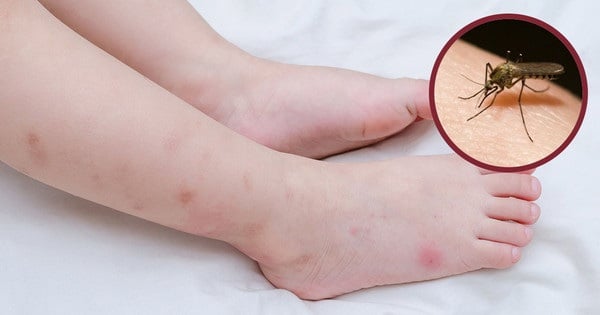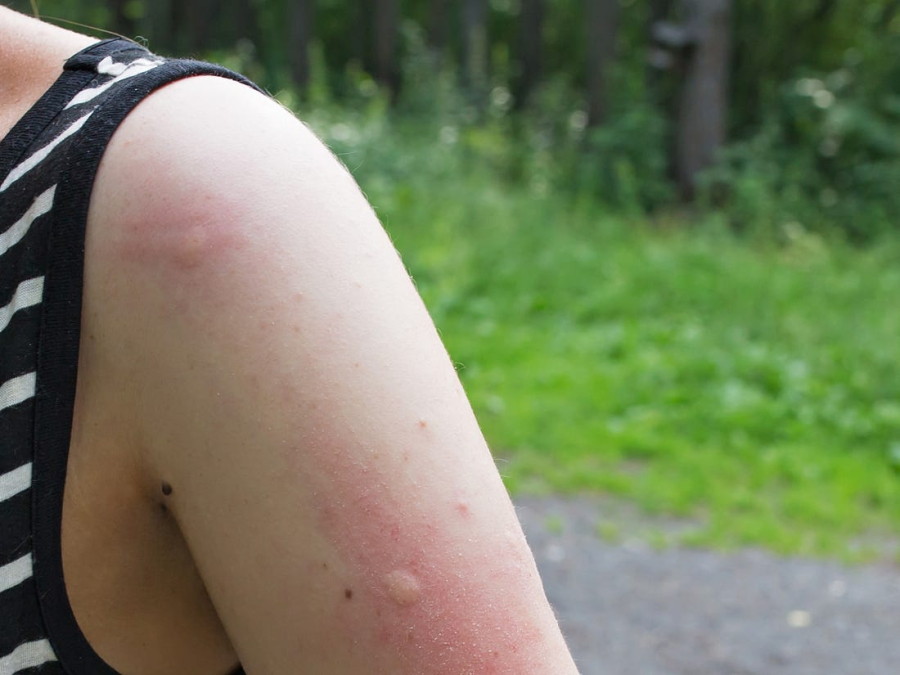Tips for Mosquito Bite Treatment

If you can’t avoid mosquito bites, try these tips to reduce itching and discomfort.
Use table salt: Apply a small amount of coarse salt directly to the bite to relieve itching and prevent swelling. Alternatively, mix with clean water to form a paste and apply to the affected area.
Use lemon: The acidic nature of lemons helps fight infection and quickly reduces itching. Use a cotton ball to apply fresh lemon juice to the bitten area. However, be cautious as lemon can cause skin irritation when exposed to sunlight; it’s best to use this remedy indoors.
Apply toothpaste: Mint toothpaste can be applied to mosquito bites, especially for children. Let it dry naturally for effective relief from mosquito bites.
Ice: Applying ice numbs the nerves around the bite, providing instant relief from pain and itching.
Use essential oils: Most people find relief from mosquito bites by using essential oils, especially eucalyptus oil, which is often preferred for children.
Aloe Vera: The natural anti-inflammatory and antibacterial properties of Aloe Vera help reduce skin irritation. Its gel also acts as a natural disinfectant, soothing itching and reducing redness.
Garlic: Not only does garlic help treat mosquito bites and reduce swelling and itching, but it also repels mosquitoes when applied to the skin. Simply peel and crush a clove of garlic, then apply the slices directly to the bite for a few minutes to ease discomfort.
Tea Tree Oil: Tea tree oil is a powerful antibacterial and antiseptic agent. Apply it directly to the bite using a cotton ball or pad to relieve itching and discomfort.
Honey: Applying honey to a mosquito bite can instantly reduce pain and soothe itching. Honey also has antibacterial properties that prevent the bite from becoming infected and swollen.
Mint Leaves: Fresh mint leaves are an effective remedy for mosquito bites due to their cooling properties, which help reduce itching. Mint leaves also possess pain-relieving qualities. To use, simply crush a few leaves and apply the paste directly to the bite until the itching subsides.
Saliva: This may seem like an old wives’ tale, but using saliva to treat mosquito bites is quite common. Saliva has alkaline properties that help neutralize the itching sensation caused by mosquito bites.

Try These Tips to Reduce Itching and Swelling from Mosquito Bites
Why Do Mosquitoes Bite Some People More Than Others?
According to scientists, people who are most prone to mosquito bites include those who are obese, have type O blood, and are male.
Obese individuals tend to have higher levels of carbon dioxide in their sweat, and a substance called Nonanal, which mosquitoes find attractive.
Additionally, mosquitoes are drawn to dark colors, so wearing dark clothing can increase the likelihood of being bitten. They are also sensitive to body temperature, and since heat brings blood vessels closer to the skin’s surface, mosquitoes can easily locate their target after a workout when body temperature is elevated.
The Ultimate Guide to Washing Mosquito Nets: Say Goodbye to Itchy Hands
Introducing a revolutionary way to keep those pesky insects at bay – say goodbye to itchy hands and mouths with our all-natural solution! Wash your mosquito nets with a mixture of water and our secret ingredient, and you’ll never have to worry about those irritating bites again. Keep reading to discover the ultimate protection for a peaceful night’s sleep.
4 Refreshing Lemon Water Recipes to Try at Home
To make a refreshing glass of lemonade, all you need are lemons and sugar. But there are so many more delicious and simple variations to this classic drink that you can try. From lemon ginger-lemongrass infusion to chia seed lemonade and even salty lemon drinks, there’s a whole world of refreshing lemon-based beverages to explore and enjoy.





































